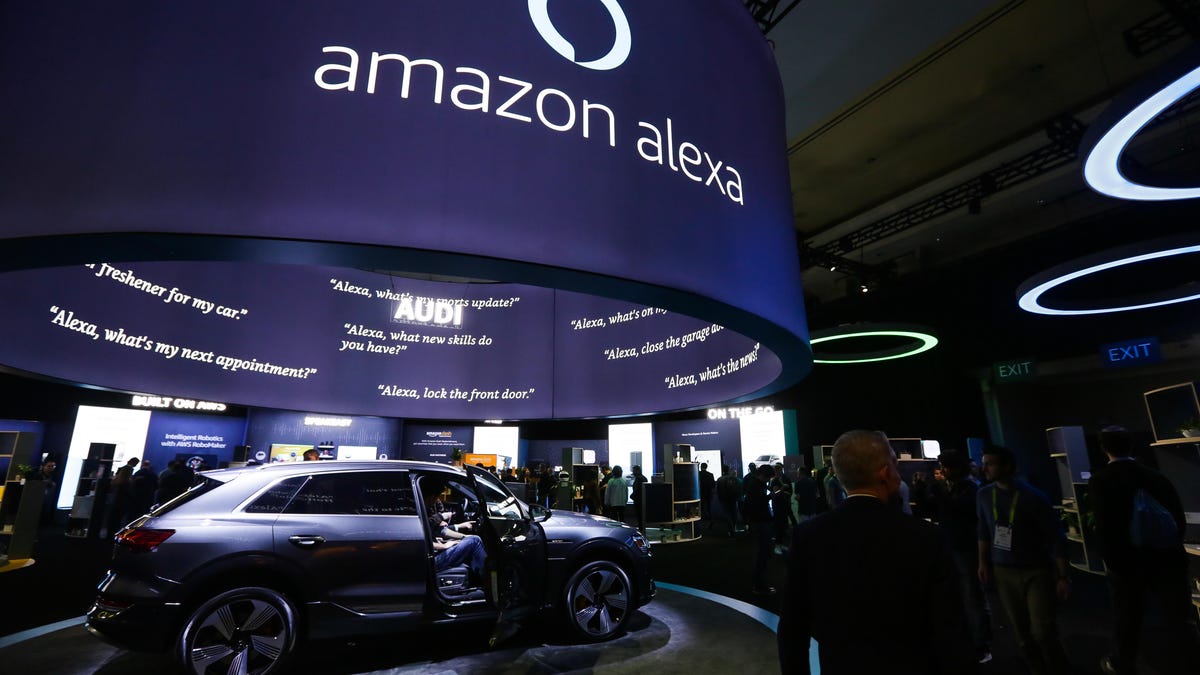 Why You Can Trust CNET
Why You Can Trust CNET Consumers no longer think voice assistants are mediocre
Adobe's latest report shows consumer sentiment about Alexa, Siri and others is much more positive.

Amazon's Alexa booth at CES
It's been a rough start for voice assistants. Not too long ago, Apple's Siri and Amazon's Alexa were buggy and didn't know the answer to plenty of obvious questions.
While those problems still exist, consumers have found these digital helpers work much better than they did before. Now, 54 percent of US consumers say voice assistants work well. Forty-one percent said they work OK and just 5 percent said they work poorly. The results come from a late January survey of over 1,000 US adults by Adobe .
The results, published Tuesday, are a substantial jump forward from Adobe's mid-2017 voice survey. It found that just 37 percent of customers thought voice assistants worked "very well" or good," 26 percent said they were "OK," and 37 percent described them as "not good" or "terrible."
The shift in consumer sentiment should help sales of smart speakers and connected home devices, which have already been seeing positive growth. Amazon, for example, said its Echo Dot smart speaker was its best selling product globally this past holiday season. The change should also give Amazon, Google and others some vindication that their huge investments to boost the capabilities of their assistants are paying off.
In its new report, Adobe said 36 of Americans now own a smart speaker, up from 28 percent a year ago. In all, 75 percent of those smart speaker owners say they use the devices at least once a day, showing that the gadgets aren't just sitting quietly on a shelf or unplugged in a junk drawer.
"It just shows people are really familiar and comfortable having voice assistants in everyday life now," said Adobe spokesman Kevin Fu.
What caused the change in sentiment? For one thing, voice assistants have improved, thanks to heavy investments from major tech companies. The assistants have added thousands of new apps and now work with thousands more devices, making them more useful for customers. Google in January introduced an interpreter mode for its Assistant to help two people who speak different languages converse. Amazon spent time last year adding its Echo devices into hotels and integrated Alexa into more cars. Amazon in November said it now has over 10,000 employees working on Alexa, helping it put a lot of energy into improving its voice ecosystem.
"AI and natural language processing has come a long way, removing a major friction point for adoption," Colin Morris, a director for Adobe Analytics, said in a statement.
Another potential reason for the shift in sentiment may be that voice assistants aren't so new anymore, so consumers now know better to focus on these devices' strengths and avoid their weaknesses.
As part of the new study, Adobe said the most popular place for a smart speaker in the home is the living room, with 64 percent of respondents putting a device there. That was followed by the bedroom (46 percent), kitchen (32 percent), bathroom (6 percent) and outside (2 percent).
The most popular device to access a voice assistant is the phone, followed by a smart speaker, then car.
The most typical activity to use a smart speaker continues to be playing music (74 percent), followed by checking the weather (66 percent) and asking fun questions (58 percent). A handful of emerging uses for voice assistants -- like shopping, playing games and managing finances -- saw a dip from Adobe's August report. Fu attributed that change to a slew of new smart speaker owners buying the devices during the holidays.
"With more first-time users, you would expect this. It's not until later that they start to discover that there's more you can do," Fu said. "That's a symptom of the base growing."

